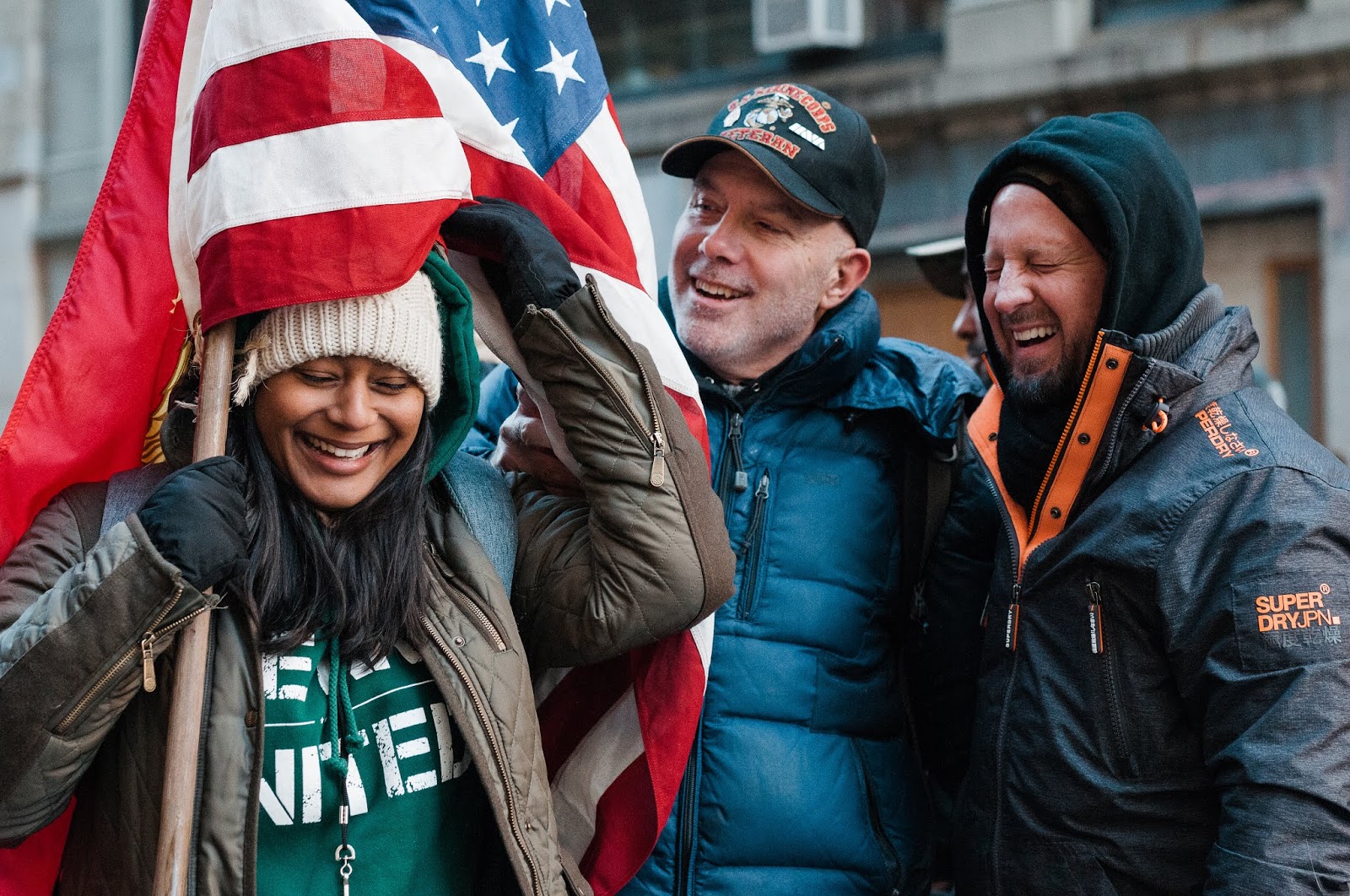IAVA | August 4, 2015
Read: Creative Spotlight: “I’d Walk With My Friends If I Could Find Them”

In his debut novel I’d Walk With My Friends If I Could Find Them, Jesse Goolsby elegantly lays bare the aftermath of war. In characters distinct and yet familiar, Goolsby, an Air Force officer himself, pays homage to the realities of transitioning home, both for the service member and — in particular — their family. Goolsby spoke with us, via email, about his experience writing this multi-faceted tour de force.
Where are you from?
I was raised in Chester, California, a small town in the far northern reaches of the state.
What is your connection to the military/veteran community?
I am an active-duty Air Force officer, currently serving in Tallahassee, Florida. I began my career as an Aircraft Maintenance Officer with assignments in England and New Mexico. Since then, I have served as an educator, staff officer and communications director in positions in Tennessee, Colorado, Washington and now Florida. Besides serving in the armed forces myself, my strong connection to the larger military/veteran community was cemented during my assignment working at the Pentagon. One of the great privileges of my professional and emotional life was to work in the Personnel and Readiness office, where our effort was focused on taking care of our service members and their families. That included overseeing the care of—and often interacting with—our nation’s wounded warriors. It was a devastating and uplifting experience every time we visited, for example, the Walter Reed National Medical Center. There’s no way around the tragedy of pain and loss these service members and their families experience, but at the same time, their collective resolve, selflessness and even humor are inspiring reminders that many people among us have devoted the entirety of themselves to serving our country, regardless of political persuasion.
What made you decide to write a novel?
For as long as I can recall I’ve been passionate about humanities and literature in particular. The majority of my free time over the years, outside family time, has been spent reading and considering the craft of writing. About eight years ago, I began writing in earnest, most of the time at night after my family had gone to bed, and I was very fortunate to have some short stories selected for publication. That gave me the confidence to continue to write, and to draft a novel. Thematically, the novel began as a response to the many outlets that painted service members and veterans with a broad brush, or in ways that seemed to me overly simplified. What I saw through much of the media lacked specificity and the required time and space for individual experiences to be explored and appreciated. When crafting the novel, one of my intentions was to take a look at the long view of the three protagonists and their families. For me, it was very important to give as much focus to their lives before and after their military service as to their years in the military. In this way, my hope is that the novel showcases that veterans are first and foremost individual human beings with unique hopes, traumas and dreams before, during and long after they serve.
You cover so many topics as you explore your characters’ transition experiences, including PTSD, MST, addiction and the civilian-military divide. How did you approach giving each issue its due course?
My first priority was always to do justice to the characters and their specific yearning for connection. By following the characters through their successes and traumas, through their setbacks and reconciliations, the difficult issues that they navigated came to the forefront through their collective desire to give and receive love. Projected by the characters’ desire for human connection, the novel explores many difficult issues including–as you note–PTSD, addiction, sexual assault as well as the power of family, friendship, hope and resilience. By purposefully taking the long view into these characters’ lives, they are provided the space to change, the time for nuance, to have good days and bad days, make a variety of decisions that will both haunt and save them.
The military family is explored so deftly in your novel, spotlighting the spouse’s as well as the child’s perspectives. Why did you feel it was important to convey in highlighting these relationships?
The value of their lives. That spouses and children live every day that service members live, that they are equal in every way to the service member, that they deserve focus on their specific hopes, dreams, fears and perhaps most important, that they constantly demonstrate courage and loyalty. Put another way, there are no guaranteed moments of repose for anyone. Generally, America does a pretty good job of recognizing battlefield courage and loyalty. It’s more easily identifiable and celebrated from the White House to our communities’ main streets. This is wonderful and appropriate. However, collectively, we do a much poorer job of recognizing and celebrating the incredible strength and courage of our military spouses and children, but their sacrifices, while different, are no less strenuous. By providing space to these spouses and children in the novel, I would hope that the bigger picture of what combat and service mean to the entire family are highlighted.
We spend decades with your three characters, from their teenage years to almost 20 years past their service, a particularly unique way to approach crafting this kind of narrative. How would you describe your experience of writing your debut novel?
Alternating terror and joy! Seriously, I have a deep appreciation for anyone, regardless of his or her specific creative persuasion, of crafting something and sharing it with the world. The writing of this book was a great privilege. First, I have a wonderful job serving in the Air Force, and I accepted from the beginning that my writing could only happen during select windows of time. Pragmatically, that took a lot of pressure off, and I’m glad it did, because the book took over five years to complete. Separately, it was extremely gratifying in following my passion for writing. I had told myself for years that I might only be able to write later in life. It’s due to the support of my family and friends and overcoming some personal doubt that I was able to work through the book. Finally, I’d say that I’m still working through the experience of writing the book. Wonderfully, each reader has his or her own sensibility that they bring to the reading experience, and I’ve had the great privilege of hearing from many readers and their personal reactions to the material.
What do you hope readers take away from the book?
I hope that my book allows readers the time and space to enter the world of these characters and to consider their specific yearnings for human connection.
I’d Walk With My Friends If I Could Find Them is available for sale on Amazon.







